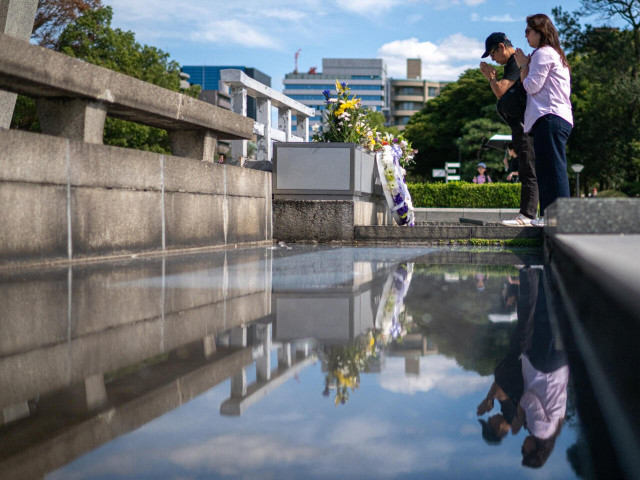Nobel prize a timely reminder, Hiroshima locals say
Hiroshima survivors, like Susumu Ogawa, hope the world remembers the horrors of the atomic bombing of 1945.

Just like the dwindling group of survivors now recognised with a Nobel prize, Hiroshima's residents hope that the world never forgets the atomic bombing of 1945 -- now more than ever.
Susumu Ogawa, 84, was five when the bomb dropped by the United States all but obliterated the Japanese city 79 years ago, and many of his family were among the 140,000 people killed.
"My mother, my aunt, my grandfather, and my grandmother all died," Ogawa told AFP a day after the survivors' group Nihon Hidankyo was awarded the Nobel Peace Prize.
Ogawa recalls very little but the snippets he garnered from surviving relatives and others painted a hellish picture.
"All they could do was to evacuate and save their own lives, while they saw other people (perish) inside the inferno," he said.
"All nuclear weapons in the world have to be abandoned," Ogawa said. "We know the horror of nuclear weapons, because we know what happened in Hiroshima." What is happening now in the Middle East saddens him greatly.
"Why do people fight each other?... Hurting each other won't bring anything good," he said. On a sunny Saturday, tourists and residents strolled around the Hiroshima Peace Memorial Park where "Little Boy" detonated with a force equivalent to 15,000 tonnes of TNT.
Temperatures reached an estimated 7,000 degrees Celsius (12,600 Fahrenheit). A firestorm sucked the oxygen out of the air and homes blazed for miles around.
A preserved skeleton of a building close to ground zero and a statue of a girl with outstretched arms are poignant reminders today.
Nihon Hidankyo was formed in 1956, tasked with telling the stories of "hibakusha" -- the survivors -- and pressing for a world without nuclear weapons.
Visiting the Hiroshima memorial, Kiyoharu Bajo, 69, said he hopes that the Nobel prize will help "further spread the experiences of atomic bomb survivors around the world" and persuade others to visit.
With the average age among the roughly 105,000 hibakusha still alive now 85, it is vital that young people continue to be taught about what happened, added the retired business consultant.
"I was born 10 years after the atom bomb was dropped, so there were many atom bomb survivors around me. I felt the incident as something familiar to me," he said. "But for the future, it will be an issue."
Three days after Hiroshima, on August 9, 1945, the United States dropped a second nuclear weapon on the southern city of Nagasaki, killing around 74,000 people.



















COMMENTS
Comments are moderated and generally will be posted if they are on-topic and not abusive.
For more information, please see our Comments FAQ